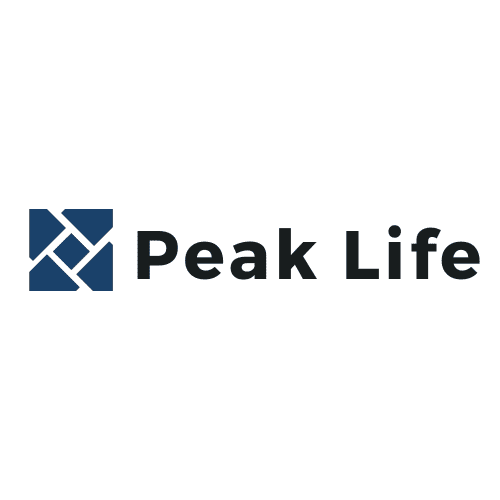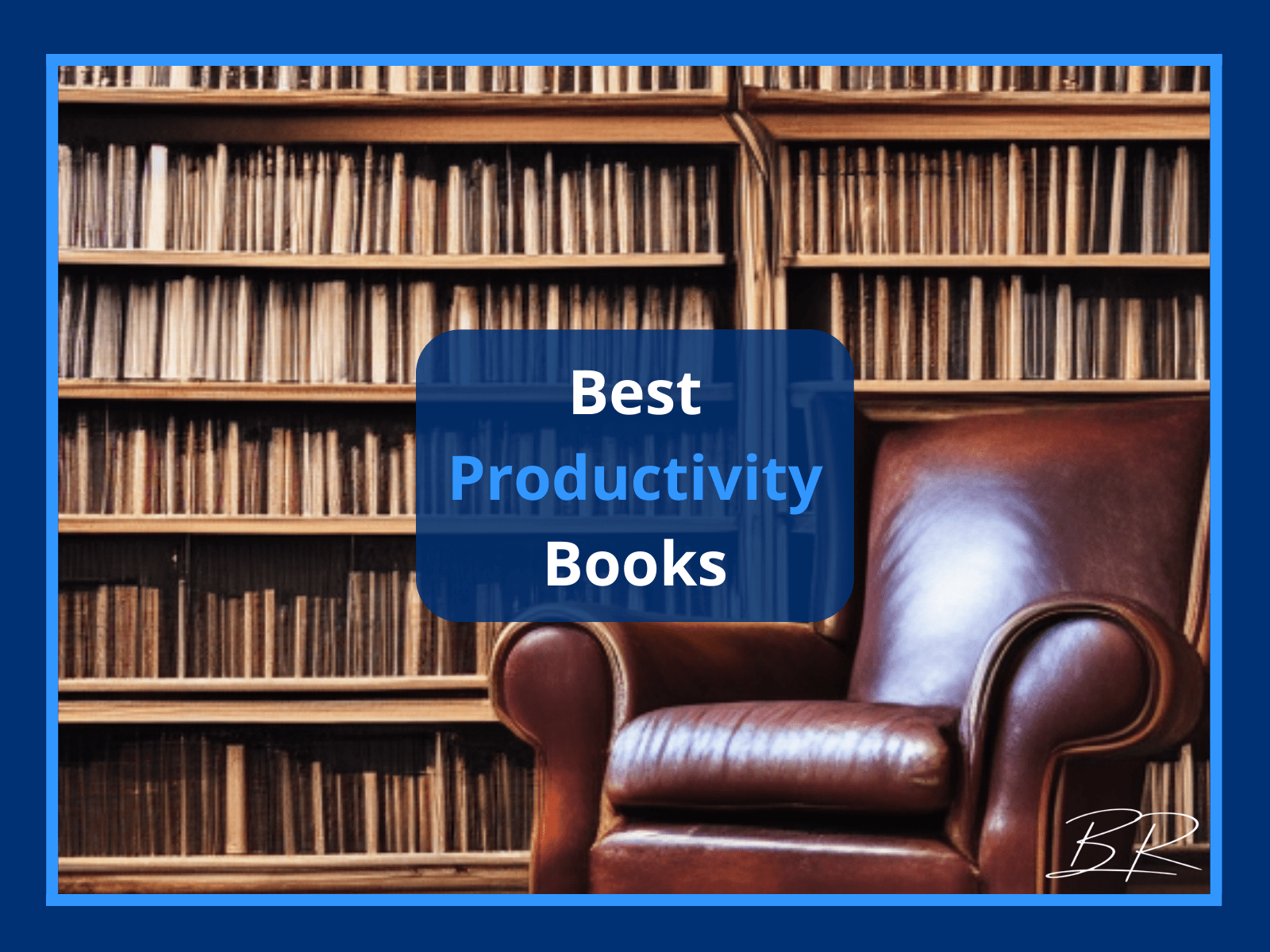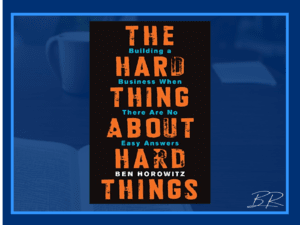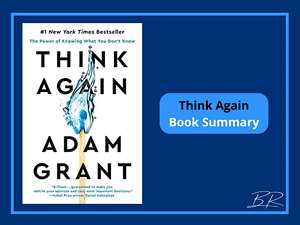15 Best Productivity Books in 2022 Get Meaningful Work Done
This post contains affiliate links that help supports this blog and cost you the exact same. If you do not wish to use affiliate links, then feel free to google the product.
We all want to be productive.
We want to get more done in less time so we can have more free time to do the things we love. But sometimes, it feels like no matter how hard we try; we can’t seem to achieve the focused success we desire.
But do not worry, there is hope for us all.
If you’re looking for some help getting your productivity levels up, look no further than these 15 books.
From classics like “The 7 Habits of Highly Effective People” to more modern takes like “Deep Work,” there’s a book on this list for everyone.
15 Best Productivity Books in 2022
Check out these articles as well:
The 14 Best Books For Starting A Business
The 31 Most Inspiring Business Quotes To Help You Succeed
34 Best Books for Engineers to Read
The book links are Amazon Affiliate links. These cost you the exact same amount while providing me with a small commission. I greatly appreciate your support. If you do not wish to use affiliate links, feel free to simply google the title.
1. The 7 Habits of Highly Effective People by Stephen R. Covey
1

The 7 Habits of Highly Effective People by Stephen R. Covey
My favorite productivity book is the classic The 7 Habits of Highly Effective People.
In this book, Stephen Covey successfully argues that to change our life, we must grow our character, which is a sum of our habits. To do this requires a change in how we see the world.
Covey helps us by developing these seven habits:
1. Be Proactive – Principles of Personal Vision
2. Begin with the End in Mind – Principles of Personal Leadership
3. Put First Things First – Principles of Personal Management
4. Think Win/Win – Principles of Interpersonal Leadership
5. Seek First to Understand, Then to Be Understood – Principles of Empathic Communication
6. Synergize – Principles of Creative Cooperation
7. Sharpen the Saw – Principles of Balanced Self-Renewal
2. The One Thing by Gary Keller and Jay Papasan
2

The One Thing by Gary Keller and Jay Papasa
Out of all the productivity books I have read, this one has caused the most personal change in my life.
I did not realize how impactful this book would be, yet I use its principle every day.
The big idea of this book is that there is always one thing you should focus on most, and you need to spend time identifying that one most important thing and letting the rest go.
The difficulty is that the one thing we should be working on is typically the most challenging task on our to-do list. To achieve the success we are capable of; we must improve at mastering difficult tasks.
And often, these require the principles outlined in the next book, Deep Work.
3. Deep Work by Cal Newport
3

Deep Work by Cal Newport
In a world of competing priorities and demands for our attention, it is now the norm to go days without getting any valuable work done.
Deep Work, by the best-selling author Cal Newport, is a book that describes why we need to focus on the tasks that matter and how we can start producing the Deep Work that will set us apart in our careers, business, and everyday life.
The main point of this book is that we must create productivity habits around working on the most important tasks in our life and say no to the rest.
In our distracted world, this has become increasingly difficult and requires us to say no to many potential projects so that we can work on the few projects that matter.
4. Eat That Frog! by Brian Tracy
4

Eat That Frog! by Brian Tracy
Eat That Frog is based on Mark Twain’s saying that if you eat a frog first thing in the morning, your day can only improve.
Brian Tracy applies that logic to productivity by emphasizing the importance of focusing on the most critical task and doing that first.
In his book, he outlines 21 tactics to create a productivity system to get the work that matters done.
Although the title could use some work, this book is fantastic!
5. Getting Things Done by David Allen
5

Getting Things Done by David Allen
David Allen’s Getting Things Done has transformed many lives by allowing them actually to get things done and stop procrastinating.
This book is laid out in an easy-to-understand system for organizing, archiving, prioritizing, and completing the endless list of critical tasks we are confronted with daily.
6. First Things First by Stephen R. Covey
6
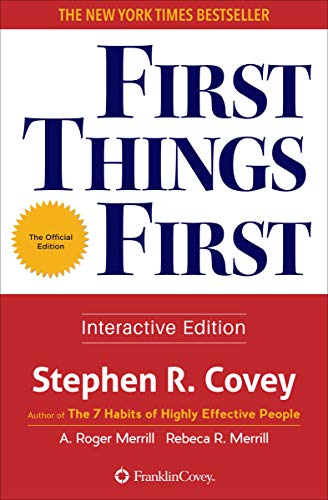
First Things First by Stephen R. Covey
The book “First Things First” by Stephen R. Covey and A. Roger Merrill is a guide to effective time management.
The book argues that to be productive, we must focus on the most important things first and put less important tasks off until later.
The book offers various tips for effectively managing time, including setting priorities, organizing your time, and avoiding procrastination.
7. Principles: Life and Work by Ray Dalio
7

Principles: Life and Work by Ray Dalio
While this book may not be full of productivity tips in the traditional sense, I found it full of life-changing insights that have allowed me to get twice the work done in half the time.
In his book, Principles: Life and Work, billionaire hedge fund manager Ray Dalio shares the lessons he’s learned over his remarkable career.
Dalio argues that life is a never-ending learning cycle and that we must constantly be open to new ideas and experiences if we want to improve. He also stresses the importance of having a clear purpose in life and shares his personal mission statement: “create a world where all people can prosper.”
Dalio shares many stories from his own life and career, from that the five biggest takeaways I had were:
1. Life is a never-ending learning process.
2. Find a way to enjoy work, and life will become more enjoyable.
3. Be persistent and don’t give up on your dreams.
4. Be open-minded and constantly seek new experiences.
5. Be willing to face challenges
8. The E-Myth Revisited by Michael Gerber
8

The E-Myth Revisited by Michael Gerber
The E-Myth Revisited is a book about small business ownership and the myths surrounding it, specifically being an entrepreneur.
According to the author, most people who start small businesses do so because they want to be their own boss or because they have a passion for what they do. However, these are not the only reasons to start a business. In fact, the author argues that these reasons are the reasons to avoid starting a business.
The real reason to start a business is to create a system that will run itself while the owner concentrates on growth and profit. The author calls this the “E-Myth” – an entrepreneur who works on their business rather than in their business. To achieve this, the owner needs to create processes and systems that will allow them to delegate responsibilities and work on their business rather than in it.
While this book is specially geared towards businesses, I believe the insights make this one of the top productivity books.
9. Make Time by Jake Knapp and John Zeratsky
9
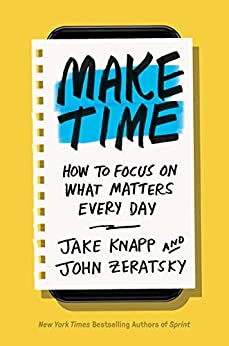
Make Time by Jake Knapp and John Zeratsky
Make Time is a book by Jake Knapp and John Zeratsky about how to find time to do the things you want to do.
This book provides excellent insights and actions toward recovering our time from the surprisingly simple truth that the world is designed to steal our time and attention. Make Time proposes direct and simple lifestyle adjustments that help protect us from distractions and allow us to focus on the key activities that matter.
Overall, “Make Time” is a helpful guide for anyone looking to improve their time management skills.
10. The Power of Habit by Charles Duhigg
10

The Power of Habit by Charles Duhigg
The Power of Habit by Charles Duhigg is a book about how habits form, how to break bad habits, and how to create good habits.
Duhigg cites scientific research to support his arguments and provides many examples of how habits have played out in the real world.
One of the most exciting points Duhigg makes is that a habit is not a single, discrete event but rather a sequence of events that are triggered by a cue and that lead to a reward. So, for example, when you go to the gym, the cue might be seeing your workout clothes laid out on the bed, and the reward might be feeling proud of yourself for working out.
Duhigg offers several techniques for breaking bad habits and creating good ones. One method is to identify the cue, the routine, and the reward associated with a particular habit and then try to replace the routine with a new one.
I found The Power of Habit to be an interesting and informative read. Duhigg’s explanations were clear and easy to follow, and I enjoyed learning how habits work. I would recommend this book to anyone interested in psychology or behavioral change.
11. Atomic Habits by James Clear
11

Atomic Habits by James Clear
The book Atomic Habits by James Clear is the definitive guide to changing your habits for the better.
Clear argues that all habits, good or bad, are created in the same way: by choosing a cue, a routine, and a reward. Once you understand how these three things work together, you can start to change any habit.
One of the best ways to change your habits is to use an “implementation intention.” This plan defines when, where, and how you will do something new. For example, if you want to go to the gym more often, your implementation intention might be, “I will go to the gym every Monday, Wednesday, and Friday at 6 pm.”
Clear also recommends using a “habit tracker” to help keep you on track. This is simply a list of your goals and your progress toward them each day. Checking boxes or crossing lines can be satisfying and help keep you motivated.
This instant classic is an excellent guide to creating healthy habits and breaking bad ones in order to achieve your goals.
12. Essentialism by Greg McKeown
12
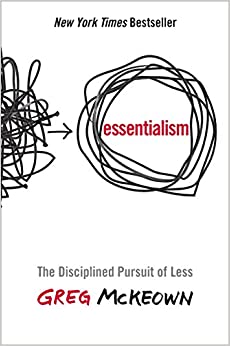
Essentialism by Greg McKeown
In Essentialism, Greg McKeown argues that people should focus on what is essential and eliminate everything else.
He provides a framework for doing this, which involves identifying your priorities and removing anything that doesn’t support them.
McKeown also discusses the importance of saying no and provides tips for doing so effectively.
Overall, Essentialism is a helpful guide for anyone who wants to simplify their life and focus on what’s important.
13. The 4-Hour Workweek by Tim Ferriss
13

The 4-Hour Workweek by Tim Ferriss
The 4-Hour Workweek is a book by Tim Ferriss that discusses the concept of working less and living more.
The book outlines strategies and tactics for streamlining your work schedule to make the most of your time. Ferriss argues that by optimizing your workflow and eliminating unnecessary tasks, you can drastically reduce the time you spend working. He also provides tips for improving your productivity and reducing distractions.
This book gives a step by step guide to achieving a more relaxed and productive lifestyle while making more money.
14. Discipline is Destiny by Ryan Holiday
14
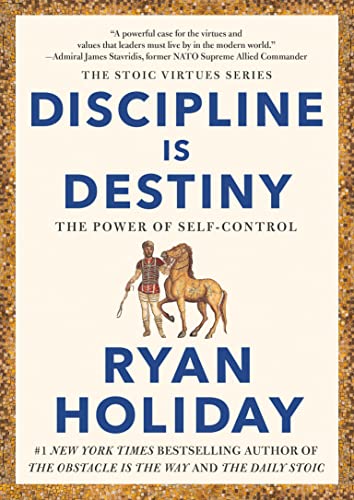
Discipline is Destiny by Ryan Holiday
This book discusses that success is not a coincidence but the result of hard work and discipline.
Holiday argues that by developing discipline, you can create the life you want instead of becoming a victim of circumstance. In addition, the book provides specific tips for improving productivity, including setting goals, managing time wisely, and dealing with distractions.
Discipline is Destiny provides a valuable framework for achieving success by becoming more productive through discipline.
15. The Effective Executive by Peter Drucker
15

The Effective Executive by Peter Drucker
The Effective Executive is a book, by management expert Peter Drucker, that discusses the five essential practices that make an individual successful.
Peter Drucker shares how we can manage ourselves to become more effective (and productive) in our life and work.
Reading this book can help improve productivity by teaching individuals to manage their time and tasks better.
Conclusion
No matter what your productivity goals are, there’s a book on this list that can help you achieve them.
Although many of these productivity books cover the same principles each one offers its own unique viewpoint.
So put down that Netflix show (you can always watch it later) and pick up one of these books instead—your future self will thank you! Here is to your upcoming extraordinary results.
What is Productivity?
With so much talk about improving productivity, it would be helpful to define it.
Productivity measures how much output (in terms of goods, services, or other results) is produced in a given period.
Productivity measures are vital because they provide insight into how efficiently resources are used. In our case, we often refer to what results we can achieve in a given amount of time.
This often means looking at how much money is made per unit of time for business and work.
By becoming more productive, we can improve our output per unit of time, which typically allows us to be healthier, happier, and wealthier than our less productive friends, family, and co-workers.
Effective Versus Efficient
There’s a difference between being effective and being efficient.
To be effective is to do the right things, while to be efficient is to do things right. In other words, effectiveness is about getting the right results, while efficiency is about doing things in the best way possible.
The two concepts are often confused because they both relate to achieving goals. However, they have different focuses.
Being effective is about choosing the right goals to achieve while being efficient is about achieving those goals in the best way possible.
What are 5 Quick Tips for Stress-Free Productivity?
1. Use a timer to break your work down into 25-minute intervals with 5-minute breaks (Pomodoro Method).
2. Make a list of everything you need to do in a day, and then prioritize that list.
3. Take care of the most important tasks first.
4. Delegate or outsource some of your work if possible.
5. Set specific goals for each day and stick to them
Bonus. Avoid multitasking; it’s actually less productive
What is the best productivity course?
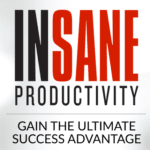
Insane Productivity by Darren Hardy
The Insane Productivity course by Darren Hardy is a comprehensive guide to maximizing productivity and achieving goals. The course is filled with techniques and strategies that have been proven to work, and it offers step-by-step instructions for putting them into practice.
One of the things that I found most helpful about this course was the section on time management. Hardy offers several tips for getting the most out of each day, including creating a to-do list and prioritizing tasks. He also discusses the importance of setting boundaries and learning how to say no.
The course also includes a section on goal setting, which is another important aspect of productivity. Hardy provides guidelines for setting realistic goals and creating a plan for reaching them. He also discusses the importance of the disciplined pursuit of goals, keeping track of progress and celebrating accomplishments.
Overall, the Insane Productivity course is an excellent resource for anyone looking to improve their production skills. It covers everything from time management to goal setting and provides step-by-step instructions for putting these techniques into practice.
So, if you’re looking to get more done in less time, this course is worth checking out.
